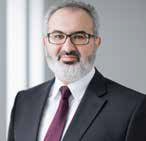Starting out in our career can often feel like a never-ending learning curve. Our mistakes, as much as our successes, define us and can help steer us forward today. As we look back to earlier stages in our careers, several of us can remember times when we thought we were not experienced or skilled enough for a role or project.
How many times have you heard someone say, “If only I knew then what I know now…?”Have you ever look back on the early days of your career and wish you could apply what you now know? No matter how talented or intelligent you are, many of the greatest lessons – in business and in life – don’t come until after years of experience. Experience has a way of revealing great leadership secrets.
While we can’t go back in time to pally this wisdom, we can help others incorporate these insights into leadership strategies that measurably strengthen their results.
HERE ARE SOME LEADERSHIP LESSONS THAT PROFESSIONALS WISH THEY HAD LEARNED SOONER IN THEIR CAREER.

LESSON # 01 KNOW THE TRUE VALUE OF TIME
Ekrem Özülker
Head of Private Banking, Kuveyt Turk Bank, Turkey
A leader leads by example is empathetic and possesses high EQ. His vision and objective-oriented approach is flanked by the ability to mobilize and motivate the team towards meeting the objectives. Upholding morals, truth, fairness and principles form the core of leadership which should never be compromised at any cost.
Leadership also requires constant assessment of performance vis-a-vis objectives and modifying approach and tactics constantly in accordance with the changing external factors. A leader has to constantly demonstrate creativity and innovation and inculcate in his team the ability and desire to create and innovate.
In essence, the leadership lesson I wish I had picked up earlier in my career is to value time, which is the most precious commodity. I wish I had understood the value of time as the supreme factor while acquiring, deploying and applying the leadership skills to motivate and direct the team towards meeting the organizational objectives.

LESSON # 02 BE TRANSPARENT
Muhamad Haseirie Mahyudin
Vice President/ Microplus, Retail Banking Department, Bank Simpanan Nasional, Malaysia
I believe being transparent to all my staff is my critical success factor. As a leader, I need to explain and brief them on every action taken by company whether they like it or not. It’s my duty to motivate and educate them. Being transparent will allow my staff to fully commit to the company’s direction in achieving our goal. They will trust you more rather than you keep the information. You can’t buy staff loyalty but you must earn it.

LESSON # 03 CONNECT WITH PEOPLE AROUND YOU
Esra Moheb
Senior Consultant at Temenos
Leading by example is one of the most effective, if not it, approach. Aside from the work objectives, sincerely touching the teams’ emotional aspects, and connecting with them in a thoughtful was (even with very minor gestures) eventually reveals dedication, loyalty and compassion towards work. Hard working is not necessarily a key, but smart working is.

LESSON # 04 LET THINGS TAKE ITS COURSE
Ugurlu Soylu
Islamic Banking Pioneer and Expert, and Consultant at Soylu
Consulting, German
As you get older, ideally you should get wiser. From a later, more mature perspective the most important leadership lesson for me in my professional life is to be calmer and let the things happen that are supposed to happen. As a leader it is quite difficult to accept that sometimes things develop in ways that are suboptimal or even harmful for your company, but you cannot hold them up. Of course, it is important to push your ideas, to be creative and visionary and to lead. But organisational systems are extremely complex and sometimes even for the leader not possible to emerge. Accepting the social law of inertia preserves you from wasting your time and energy for things you can hardly change – energy you essentially need for your partner, your family, yourself and your company.

LESSON # 05 AVOID NARROW TUNNEL-VISION THINKING
Farah Arakji
Chief Financial Officer, Abu Dhabi National Takaful, UAE
Of all the lessons my journey has taught me, the one that I was least prepared for was how to productively have a tunnel vision without missing the forest for the tree.
From very early on in my career, I, like many young leaders, have been told to “Set your sights on the goal.”, “Never lose sight of your target.” and that is exactly what I did. I fell into the “tunnel vision” trap of committing to a single fixated vision and aiming at definite goals to achieve my department’s metrics and KPIs. While those traits helped me get to where I am today, they are only one rung in the ladder to success.
Today, I work hard to set the vision for my team. One that supports the achievement of strategies and measurable objectives, but does not fall short on the overall business foresight nor sacrifices character and integrity. I strongly believe that we should have in place measurable targets and metrics to aim at. However, it should not follow a narrow context that blocks out our view of the overall business environment and other surrounding sidelines. That larger picture is what guides us. It allows us to manoeuvre around obstacles that, in the narrow scope seem unavoidable and sometimes even debilitating. Great leaders have great vision.

LESSON # 06 COMMUNICATE CLEAR EXPECTATIONS
Abd. Azim Mohammad
Head, Management Reporting Section (MRS), Finance Division Bank Islam Brunei Darussalam
One leadership lesson I wish had picked up sooner would be the clearly communicating my expectation to my team. Effective communication is imperative to a successful career. Having the best knowledge will not guarantee success if it is was not clearly communicated. When leading a team, communicating your expectation is equally important. Communication comes in different shapes and sizes, and interpretation of such instruction may vary from one person to another.
By sharing what I have envisioned enables team members not only aligned to it but also able to come up with other ways of tackling such assignments. Providing clear, direct expectations helps team members focus their performance on what’s important and on what results that was outlined. Without sharing such expectation, the recipient may have different ideas of what is actually required. Asking for analysis of a market for example, may be as simple as a one-pager table as opposed to a 10-pager report. Not only a 10-pager report takes time to produce, we waste time producing things that are unnecessary and inefficient.

LESSON # 07 DON’T EXPECT EVERYONE TO BE LIKE YOU
Aziza Ebrahim
Senior Advisor, OASIS Crescent Group Cape Town, South Africa
Having started my career at the age of 20 in an international standard-setting organization, on foundations of which I was lucky enough to have grown very fast in my career leader, one thing I wish I had learned earlier was that you should not expect everyone to be like you.
As I have slowly started managing a few people, then groups of people and then departments with people at the organization; I understood that every single person has potential despite their shortcomings. As a leader one must be able to identify it and utilize it effectively. I used to assume often that if things are clear to me they must be clear to everyone else. Only over the years that I have learned how to deliver my message to a multinational team of people at different seniority levels as getting the buy-in from executives and board members are equally important in the successful management of an organization.
One key element which I always remind myself of is patience, being naturally hard-working, fast, and ‘aggressive’ when it comes to action toward project execution, I think having patience in mind when dealing with people is very important. Unfortunately, it only comes with experience and maturity.

LESSON # 08 DEVELOP EMOTIONAL INTELLIGENCE SKILLS
Jawad Mohammad
Head of Compliance, Qatar International Islamic Bank, Qatar
Leadership is the skill that cannot be entirely thought, hence its rightfully said that leaders are born with abilities to lead. Having said that, one should always learn along his/her path towards excellence to ensure they lead in the most ethical, cultured and professional manner. I had always clasped all the learnings throughout my professional journey to ensure that I leave behind a legacy not only as good leader but also as a humble human being.
The one leadership lesson that I wish I had picked much early in my career, is the ability to understand and execute “Emotional Intelligence”. It’s the competence of persons to diagnose their own emotions and that of others, differentiate amongst diverse emotional state and mark them suitably. The use of emotional intelligence in team building is highly crucial as we should remember that today’s modern workforce in almost all the jurisdictions is dynamic and culturally diverse.
The emotions of every single person are closely knitted to their cultures and society, yet they are common for all of us as humans. Studies have exposed that individuals with better emotional intelligence have greater mental health, job performance, and leadership skills. Which implies that ability to adopt and apply emotional intelligence in leadership is essential.

LESSON # 09 LEADERSHIP IS A JOURNEY, NOT A DESTINATION
Dan Razali
CEO & Director, Absolutely Halal Global Pte Ltd, Singapore
The key lesson I have learnt about leadership is that it is not a destination or situation we arrive at. Becoming a leader is not about sitting on one’s laurels and feeling satisfaction at acquiring a leadership position. Being an effective leader is about constantly learning, and being prepared to take decisions and make changes in pragmatic rather than dogmatic ways. People look to a leader for direction and guidance, someone who leads from the front. They do not just want someone who tells them what to do, but someone who shows them how to get things done.

LESSON # 10 BE SINCERE AND OPEN
M. Jowfer Farook
Senior Products Manager, Kuwait Finance House
One of the valuable leadership lessons I learnt from my father was the importance of. My father was a “people’s person” who had a sincere concern towards family, friends and colleagues and constantly reminded us to do the same. I followed my father’s advice and experienced great success.
A leader should aspire to create an environment where team members feel comfortable sharing their challenges and ideas openly. He should constantly motivate them to develop their skills and knowledge, and help them climb the corporate ladder.
Be sincere to your team members, share all required information and together plan on achieving the overall target. This leadership quality will create a strong bond and high output from the team members and they will follow any request of the leader. In my opinion, a successful leader does not need to be highly educated but needs to have values and good personality.



